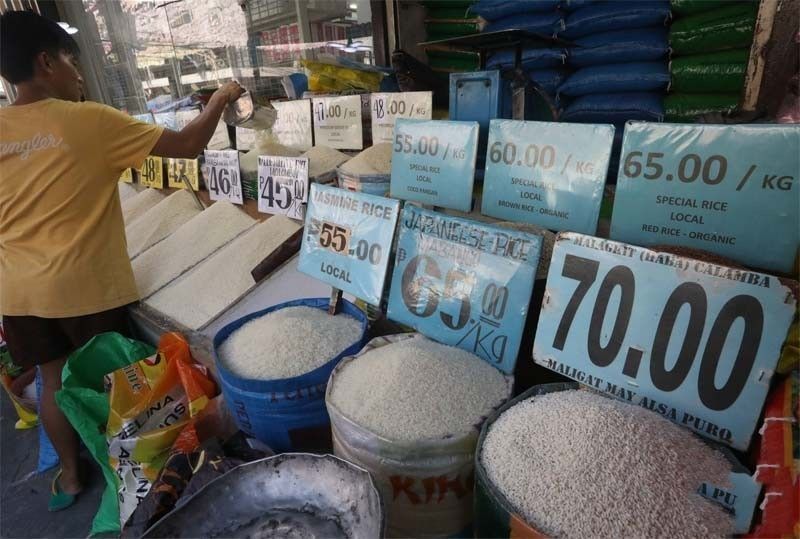DA drops plan for rice SRP

MANILA, Philippines — The Department of Agriculture (DA) is not considering the imposition of a suggested retail price (SRP) on rice, Secretary Francisco Tiu Laurel Jr. said yesterday.
“We’re not doing it. Prices of rice and other agricultural products in international markets like Thailand and other countries are volatile and fluctuating due to El Niño. Hence, we’re not suggesting to control prices at the moment,” Laurel said.
Laurel’s announcement came a few days after DA spokesperson Arnel de Mesa said the agency may release the SRP next week amid the unabated spike in retail price of the grains.
At a press conference on Monday, De Mesa said that a technical committee even met to discuss the SRP of rice two days after announcing that the DA was mulling its implementation.
Laurel maintained that earlier proposals for an SRP were just an idea based on available remedies laid out by Republic Act 7581 or the Price Act.
“I’m well aware that setting retail prices, even if just suggested, for particular goods tend to be counterproductive, especially when there is ample supply,” Laurel added.
The Price Act Law empowers the DA to stabilize prices of farm products and inputs, including rice, fish, meat, poultry and fertilizers, in times of emergencies, he said.
“In most cases, farmers bear the brunt of a price limit because traders will only lower their purchase prices to keep their margins. Consumers also don’t benefit in such a situation. It could also fuel price speculation and supply hoarding that evolves into another problem altogether,” he noted.
According to Laurel, the provision of the Price Act requires implementing rules and regulations to be first put in place before the DA could exercise that power.
He said international prices of rice are fluctuating as countries try to increase their rice reserves through importation on concerns of potential drop in harvest due to an expected strong El Niño episode.
Laurel said his agency is working double time to ensure ample supply of agricultural products, particularly rice, in the face of a potential prolonged dry spell due to El Niño, and taking steps to mitigate the weather phenomenon’s impact on local production.
Reports from the National Irrigation Administration’s Upper Pampanga Integrated Irrigation System, which provides water to farms in major rice-producing provinces of Nueva Ecija, Bulacan and Pampanga, showed sufficient water supply that could sustain strong rice output, he said.
“We’re building up a buffer, largely through importation, to ensure we have ample supply of rice as we await the next harvest starting March. This should help keep prices stable without government intervention,” he said.
Laurel pointed out that the technical working group crafting of the Price Act IRR is a clear warning to those who may want to exploit the potential shortage of supply, that the DA is empowered by law to go after them.
Meanwhile, various farmers’ groups and rice retailers lauded the DA’s decision to scrap the proposed SRP on rice.
“We welcome his (Laurel’s) decision on SRP. The DA should focus on raising local rice production, El Niño mitigation and a more efficient food logistics/distribution system,” former agriculture secretary Leonardo Montemayor said in a separate message to The STAR.
Rice retailers’ group Grains Retailers Confederation of the Philippines president James Magbanua said that the DA should ensure that proper consultations are conducted before the department decides on an issue like the imposition of SRP.
On the other hand, Samahang Industriya ng Agrikultura executive director Jayson Cainglet said there was a disconnect between the farmgate price of other farm commodities and the retail prices amid the slump in the wholesale cost of highland vegetables.
“The SRP under the Price Act penalizes retailers without addressing the undue high prices. The supply is never an issue at this period,” Cainglet told The STAR.
At the same time, Montemayor and Cainglet said that the arrival of 18,463 metric tons of imported rice from Vietnam, Thailand and Pakistan as of Jan. 4 will not bring down retail prices.
“The 18,000 (MT of imported rice) is a small quantity, just one-half of our national daily rice requirement of 36,000,” Montemayor said. - Catherine Talavera
- Latest
- Trending






























